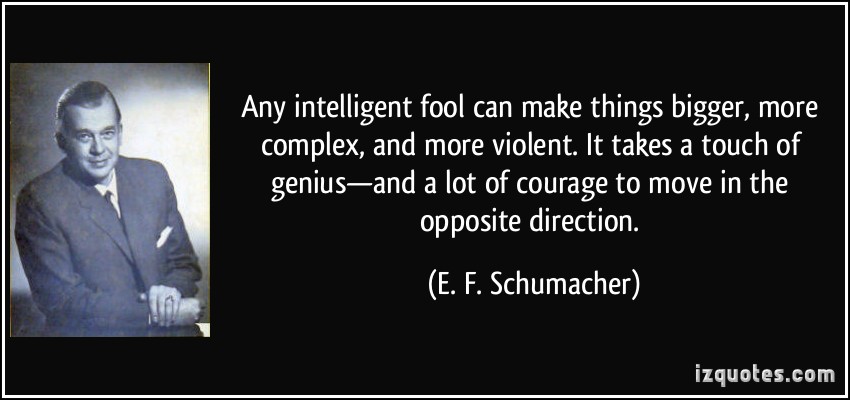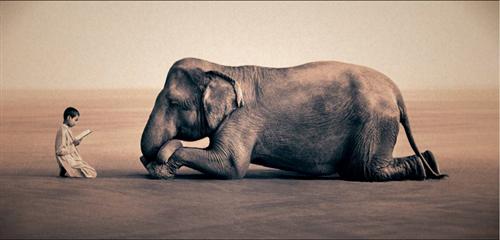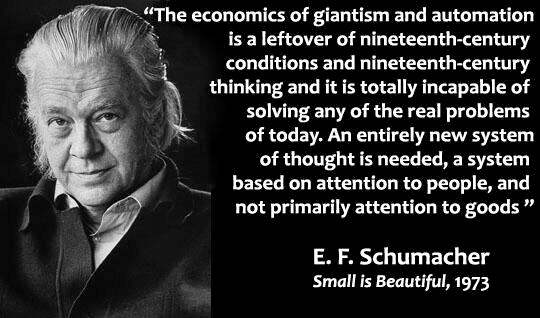
"Education to Build a Better Future for All"
We live in a world with many complex problems, at all levels, local, regional and global. It is said that education is the key that opens the door to a more harmonious world.
The pertinent question is: What kind of education and learning would help us address these challenges and create a sustainable world and a better life for all?
T.S. Eliot posed the question: "Where is the Life we have lost in living? Where is the wisdom we have lost in knowledge? Where is the knowledge we have lost in information?"
Reflecting on the questions above, we are going to need an education system that respects planetary boundaries, that recognises the dependence of human well-being on social relations and fairness, and that the ultimate goal is human happiness and ecological sustainability, not merely growth of material consumption.
In short, we need to listen to our hearts, re-learn what we think we know, and encourage our children to think and behave differently, to live more in synch with Nature.
If we do this successfully we can become wiser as a species, more “eco-logical.” We and the planet that gave birth to us can be happier and healthier, healed and transformed.
How Wisdom Grows- Educating Hearts and Minds

"Educating the mind without educating the heart is no education at all."- Aristotle
Photo: montville.net
At this time of spiritual confusion, when the world of knowledge and competence is in a state of flux, E. F. Schumacher has shown that a values-led education can do more than stumble in the dark; it points to the light in the world. It guides us to Wisdom. This has been a gift to the world. A gift I wish to share with you.
The characteristics of modern, mainly, Western educational models that come with adverse effects include a mechanistic view of humanity and an overemphasis on economic rationality, and information technology (IT).
Economic rationality may improve productivity, leading to the creation of more wealth, whilst IT may lead to thinner, smaller, fancier “smart” phones. But big problems arise when economic rationality and technology rule supreme, and the “efficiency” imperative is applied excessively to medicine, education, and other fields — as we see today — at the expense of other valid values. The twenty-first century clearly requires a new paradigm. We need smarter and wiser people, and not just more”smart” phones!
Education in olden/golden days was aimed at fostering respectable persons, persons of great discipline, honour and integrity. People believed that education was meaningless unless it was useful in life or society.
The dehumanized modern society, which values technology and money above anything else, is now losing these very norms, because people have not been taught the important things in life. Knowledge-based/information technology and fancy models-inspired education are no replacement for wisdom. This is why we should resume pursuing education that puts an emphasis on cultural enrichment and formation of the person.
In short, technology- and knowledge-based education can produce first-class engineers, but not first-class people. We must resume an education that develops the full person in the most real sense. It may not be difficult to recover from an economic recession, but it will take decades to recover from spiritual degeneration. That is why we must take action immediately.
Once again, this is why I want to share what I have learnt from E. F. Schumacher with you.

Photo: pbs.twimg.com
Schumacher’s Wisdom on Education
By Kamran Mofid
(Excerpts from an original article Small is Beautiful: The Wisdom of E.F. Schumacher)
“All through school and university I had been given maps of life and knowledge on which there was hardly a trace of many of the things that I most cared about and that seemed to me to be of the greatest possible importance to the conduct of my life.”
As it has been noted by many observers including Moss, Schumacher believed that “more education can help us only if it produces more wisdom.” He was very critical of what has eventually became the dominant purpose of higher education—career preparation for work in our modern industrial societies, which he believed were deeply flawed.
The main problem he perceived with modern education was that it had abandoned the search for wisdom. In A Guide for the Perplexed, he indicated the difficulties he faced trying to discover how best to live. “All through school and university I had been given maps of life and knowledge on which there was hardly a trace of many of the things that I most cared about and that seemed to me to be of the greatest possible importance to the conduct of my life.” These “maps” he referred to were those “produced by modern materialistic scientism . . . [that left] all the questions that really matter unanswered.” He went on to note that the situation was “even worse now because the ever more rigorous application of the scientific method to all subjects and disciplines has destroyed even the last remnants of ancient wisdom— at least in the Western world. It is being loudly proclaimed in the name of scientific objectivity that ‘values and meanings are nothing but defence mechanisms and reaction formations.’"
Schumacher maintained that what people really needed were “ideas that would make the world, and their own lives, intelligible to them. . . . If the mind cannot bring to the world a set—or, shall we say, a tool-box—of powerful ideas, the world must appear to it as a chaos, a mass of unrelated phenomena, of meaningless events.”
According to Schumacher, “Our task—and the task of all education—is to understand the present world, the world in which we live and make our choices. The problems of education are merely reflections of the deepest problems of our age. They cannot be solved by organization, administration, or the expenditure of money, even though the importance of all these is not denied. We are suffering from a metaphysical disease, and the cure must therefore be metaphysical. Education which fails to clarify our central convictions is mere training or indulgence. For it is our central convictions that are in disorder, and, as long as the present anti-metaphysical temper persists, the disorder will grow worse. Education, far from ranking as man's greatest resource, will then be an agent of destruction”.
Science, he wrote, “cannot produce ideas by which we could live,” and it was “being taught without any awareness of the . . . place occupied by the natural sciences within the whole cosmos of human thought.” Although he recognized that the sciences conveyed important information “about how things work in nature or in engineering,” they conveyed “nothing about the meaning of life.” In regard to two “social sciences,” he wrote that economics was “being taught without any awareness of the view of human nature that underlies present-day economic theory,” and politics without considering the “metaphysical and ethical problems involved” in dealing with human interaction.
At first glance the humanities seemed to offer some hope, Schumacher notes—“here indeed he [the student] can find, if he is lucky, great and vital ideas to fill his mind, ideas with which to think and through which to make the world, society, and his own life intelligible.” Unfortunately, however, “even in the humanities we may get bogged down in a mass of specialised scholarship furnishing our minds with lots of small ideas just as unsuitable as the ideas which we might pick up from the natural sciences.” Or the humanities might present to us “a view of the world as a wasteland in which there is no meaning or purpose, in which man's consciousness is an unfortunate cosmic accident, in which anguish and despair are the only final realities.”
For education to help us develop the greatest wisdom as Moss notes, Schumacher thought it had to assist us in developing our values. “Education cannot help us as long as it accords no place to metaphysics. Whether the subjects taught are subjects of science or of the humanities, if the teaching does not lead to a clarification of metaphysics, that is to say, of our fundamental convictions, it cannot educate a man and, consequently, cannot be of real value to society.”
Schumacher continually emphasized the traditional values taught by the great world religions, but also emphasized that these “values do not help us to pick our way through life unless they have become our own, a part, so to say, of our mental make-up.” He added that individuals had to interiorize what they were taught, they had to “sift it, sort it out, keep the good and jettison the bad” in order to become inner directed. Education for wisdom, however, still had to help an individual accomplish one more task—“dying to oneself . . . to all one's egocentric preoccupations.” He went on to say that to be happy and wise there were three things that people “most need to do and education ought to prepare them for these things: To act as spiritual beings, that is to say, to act in accordance with their moral impulses. . . . To act as neighbours, to render service . . . . [and] to act as persons, as autonomous centres of power and responsibility, that is, to be creatively engaged, using and developing the gifts that we have been blessed with.”
To Schumacher our values lie at the core of our being, affecting how we approach all subjects. As he notes:
“All subjects, no matter how specialised, are connected with a centre; they are like rays emanating from a sun. The centre is constituted by our most basic convictions, by those ideas which really have the power to move us. In other words, the centre consists of metaphysics and ethics, of ideas that— whether we like it or not— transcend the world of facts. Because they transcend the world of facts, they cannot be proved or disproved by ordinary scientific method. But that does not mean that they are purely “subjective” or “relative” or mere arbitrary conventions. They must be true to reality, although they transcend the world of facts. . . .
Education can help us only if it produces “whole men”, Schumacher observed. The truly educated man is not a man who knows a bit of everything . . . but he will be truly in touch with the centre. He will not be in doubt about his basic convictions, about his view on the meaning and purpose of his life. He may not be able to explain these matters in words, but the conduct of his life will show a certain sureness of touch which stems from his inner clarity”.
Thus, he thought that the study of all subjects should be penetrated by the rays of our values, of our wisdom. “Unless that person has sorted out and coordinated his manifold urges, impulses, and desires, his strivings are likely to be confused, contradictory, self-defeating, and possibly highly destructive. The ‘centre,’ obviously, is the place where he has to create for himself an orderly system of ideas about himself and the world, which can regulate the direction of his various strivings.”
Rather than educating people to fit into modern economic systems that were unsustainable, Schumacher hoped that “higher education could be designed to lead to a different world of work.” It could help students “distinguish between good work and bad work and encourage them not to accept the latter. That is to say, they should be encouraged to reject meaningless, boring, stultifying, or nerve-racking work in which a man (or woman) is made the servant of a machine or a system. They should be taught that work is the joy of life and is needed for our development, but that meaningless work is an abomination.” He also believed that those lucky enough to receive higher education in poorer parts of the world should not use it to help them distance themselves from their poorer countrymen, but to help them.
To continue and read more, as well as to note the references, please see the link below:
“I discovered Schumacher and “Small is Beautiful” in 1979. To be precise: on August 11, 1979. I had written the date I purchased the book on the first page. At that time I was an undergraduate studying economics at the University of Windsor, Ontario, Canada.
When I saw the book in the window of a second-hand book shop, I was, very much intrigued by the title and also the sub-title Economics as if people mattered which caught my imagination. Thus, I bought the book and began to read it immediately. I could not put it down and finished it in a few days.
For sure I didn't understand every word, indeed I suspect I was lost at times, but it thrilled me. Here was a new way of looking at many questions in my head about economics and the economy, an approach that I felt in my enthusiasm was so absolutely right that it couldn't possibly be opposed. I was instantly converted to a new way of looking at my personal life as well as the socio-political and economic concepts. I suspect I became a `small is beautiful' man!
Schumacher’s thoughts have never left me. Yes, I moved on, put the book to one side and no doubt compromised. Recently however, I've gone back to it. I have realised that its insights are more relevant than ever. I know again, as I did 32 years ago, that Fritz Schumacher was absolutely right and I hope that, in a modest way, we are being worthy of his legacy (See more below- Epilogue: E.F. Schumacher and I).
At present the wisdom of E. F. Schumacher seems more relevant than ever.”…
